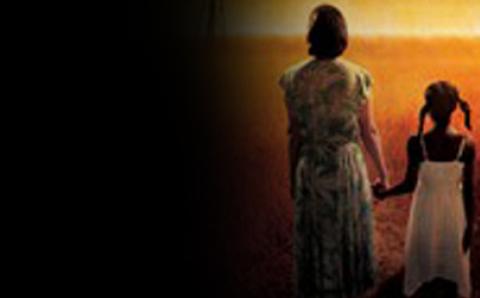Faith Formation
Q Our congregation has many young families, and we baptize one or two newborns a month. This is a huge blessing, but I’ve noticed that some members find all the baptisms irritating. Any ideas?
A It’s easy for a baptism to become a family event with spectators like a hockey game: family members are the players on the ice and the church members are the fans in the stands. Some denominations treat infant baptisms like weddings: an event for family and friends that occurs outside of Sunday worship.
But in the Reformed tradition we consider baptism a congregational event, and it’s helpful to cultivate practices that highlight this more clearly. Recently a couple in our church asked if they could each give a testimony in response to the questions parents are asked in baptism. Reading a letter to his infant son, the father promised, “We will listen for God’s voice together. We will learn together, pray together, make mistakes together. And your mother and I will be here for you every step of the way.” The mother, who had herself been baptized in our congregation as an infant, read a letter to all of us. She thanked us for fulfilling the congregational vow we had made with her baptism, and concluded, “Thank you for being our family, for loving us, and for raising our son up in your prayers even before he was born.”
Irritating? Absolutely not. Deeply affirming, celebrative, and formative for the entire body—this is congregational worship at its best.
—Syd Hielema is a professor of religion and theology at Redeemer University College in Ancaster, Ontario, and a member of the CRC’s Synodical Faith Formation Study Committee.
Outreach
Q Our church says it wants to shine the light of the gospel in our neighborhood. Yet we never seem to venture out into it. Instead we sit around in committees debating whether the Belhar Confession is Reformed enough or whether the vacation Bible school curriculum is too evangelical, or asking if the pastor quoted the catechism enough in his sermon. I understand caring about theological concerns, but what about actually doing something?
A Theological concerns certainly have their place. After all, they help us frame what we should be doing and why. So we definitely should not leave those concerns behind. However, you’re right to question the balance of energy spent on debating orthodoxy at the expense of actually bearing witness to what one believes!
A friend noted anecdotally that there seems to be a divide between sound theology and being relevant to the world. Her experience is that a church that pays little attention to maintaining strict orthodoxy does much in the way of city involvement and bringing shalom to brokenness, while some of the churches that spend more time maintaining their theological borders seem to ignore the real concerns around them.
It doesn’t have to be either/or. The important thing is seeking honestly to be disciples of Jesus. Try this: pass your personal and church activities through a lens asking, “Is this what Jesus would have us spending time on?” I find clarity for my own life and ministry when I allow this filter to shed light on what I’m doing. I trust it may do the same for you.
—Bryan Berghoef is a church planter starting a new faith community in Washington, D.C., and is the author of Pub Theology: Beer, Conversation, and God.
Justice
Q What comes first: security or justice?
A We live in a culture of fear. That leads to an obsession with security of all kinds—physical, economic, and social. Fear starts with a real problem, but it easily can take over and be manipulated by fearmongers who benefit from a fearful society. Too much fear harms people, erodes community, and wastes money on more weaponry that does not bring peace.
Fear is a reflex emotion. Justice and compassion require more thought. While fear alerts us to danger, our response needs to be guided by justice and compassion. That’s what the Bible says. And it holds out a promise for our culture of fear: do justice and things will go well in the land.
One good gift churches can give to current debates about guns and the war on terrorism is to depose the culture of fear and reframe public discussion to focus on justice and care for others. What better way to honor the first question of the Heidelberg Catechism! It says our security is in Christ, not in weapons or bank accounts. Christ knew fear, but he spoke and acted in love.
A first step reasserts core principles, starting with respect for the dignity and worth of every person as created and loved by God. Then we can’t demonize others. Second is cultivating the ability to see the world through the eyes of others. That opens the door to solutions other than revenge and violence.
If we keep fear in its place as a warning, but act on justice and compassion, greater security will be the result. The Bible tells me so.
—Kathy Vandergrift teaches public ethics to university students and advocates for the rights of children.
About the Author
Syd Hielema serves as the director of the CRC's Connections II project. He worships at the Meadowlands Fellowship CRC in Ancaster, Ont.









